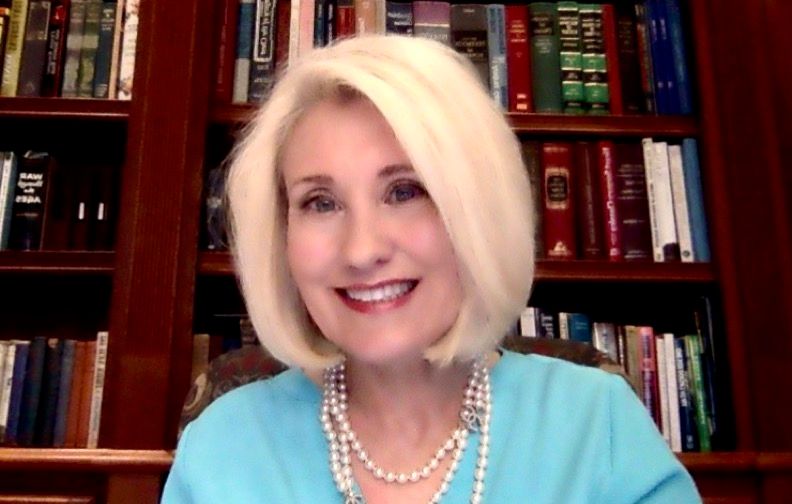Her experience with CASA
In 2020, Michelle read a book written by an attorney about the injustices in the court system and flaws in the prison system. One section of the book talked about wrongfully imprisoned children, the vast majority of which came from the foster care system. These children have learning disabilities, mental illness, trauma, and the system failed them. They don’t know right from wrong, they get tried as an adult, get out of jail, repeat.
Michelle was heartbroken to hear about these twelve, thirteen, fourteen year olds in adult prisons who had no resources to find help. These children don’t know where to start, and there are not enough social workers to properly handle the situation. Generational patterns of abuse continue.
Michelle decided that she wanted to do something. She met with Erin and immediately signed up to be an advocate with CASA of North Mississippi. She completed her training in October, was sworn in by a judge on a Thursday night, and had her first case by Monday morning. Usually advocates only have one case at a time, but Michelle took two cases within a week and a half of each other.
Case 1 - Eve* (Neglect)
Eve was reunified with her parents very quickly because of Michelle’s help. Eve’s parents were victims of the system: they were young, and their parents had also been in the system. They weren’t aware of the resources available to them. Michelle communicated with them about requirements and deadlines, and they quickly completed everything. Eve was back home in seven months. CASA advocates often find answers much more quickly than CPS because they only have one case. Both of Eve’s foster moms said that they’d never worked with a CASA advocate before and that it was great to have an advocate to work with, much better than just CPS workers alone.
*Eve's name is changed for this story.
Case 2 - Sibling Set (Severe Abuse)
Three girls whose parents’ rights were terminated, so the girls were sent for adoption. All three were able to stay together in one home. They’ve blossomed in their new home by playing instruments and developing new hobbies.
Building deep relationships
Michelle has kept in contact with some foster and biological families, and definitely the children. In the training, CASA staff told the advocates that they’d likely maintain these relationships because the advocates will mean so much to the families.
The advocate works toward the best interests of the child.
Sometimes that looks like supporting the biological family with transportation or signing the child up for camp or making sure the parents are still working. Sometimes that looks like connecting with the foster family. Other times that looks like being a liaison between the families and social workers. Michelle was able to help Eve’s family with paperwork and assure them that they were on track because CASA trained her to be familiar with the system.
Rewarding experience
Michelle says that this is the hardest thing she’s ever done - you have to deal with an ugly part of life - but it is so, so rewarding. The volunteers want to be there; they want to help.
Why others should become an advocate
It is hard and often sad work, but because of CASA, these children end up in a better home, either with their parents or in a foster or adoptive home. The children are better because of what CASA and the advocates are doing. As an advocate, you can change a child’s life. You can make it better. Who wouldn’t want to make a child’s life better?





